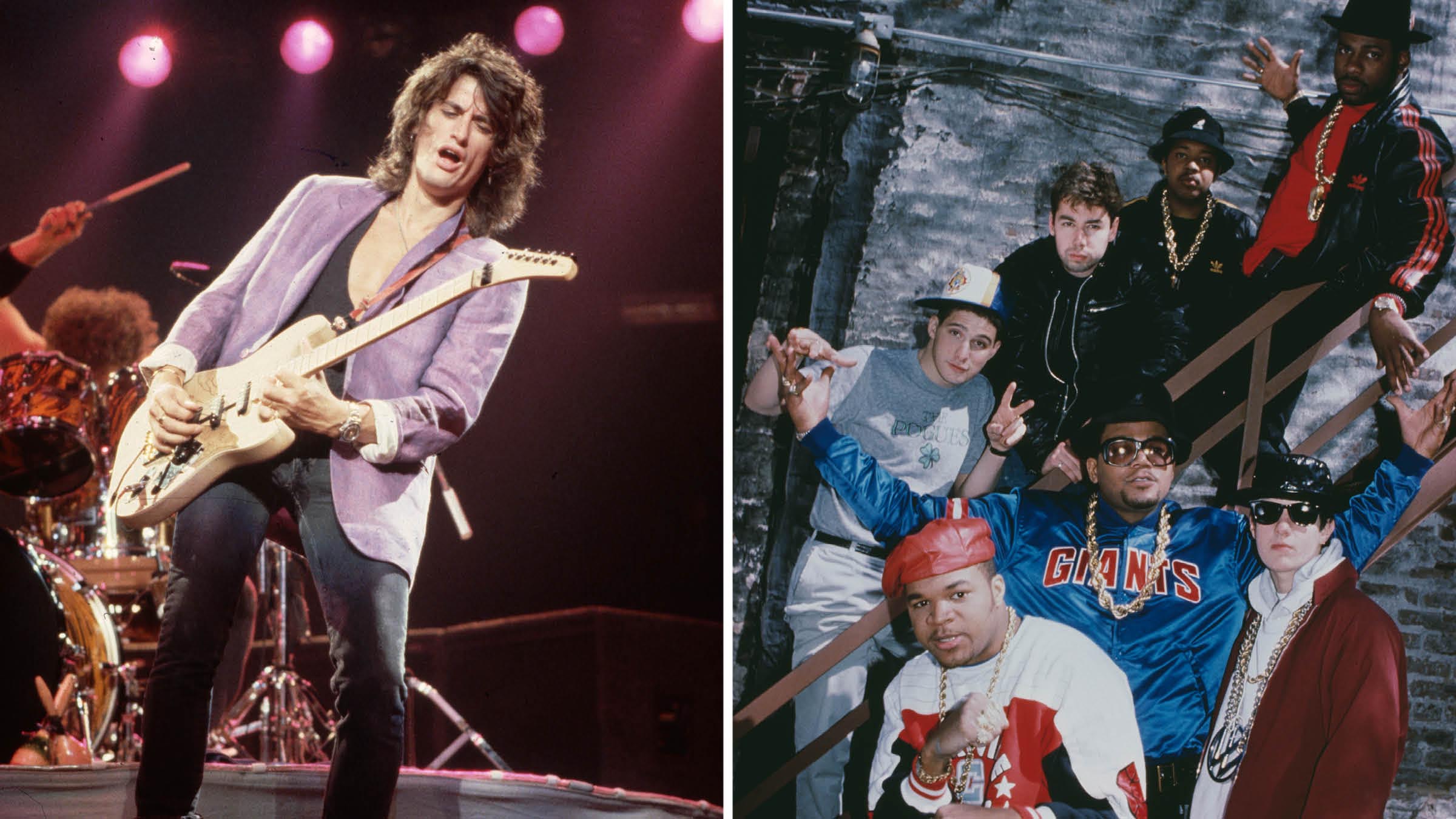Billy Strings: "A lot of times I’ll walk right out and say, 'I’m not going to lie, folks. I’m nervous as f**k right now'"
The bluegrass acoustic ace details how overcoming anxiety and panic attacks inspired his songwriting and live performances

All the latest guitar news, interviews, lessons, reviews, deals and more, direct to your inbox!
You are now subscribed
Your newsletter sign-up was successful
Starting with Mental Health Awareness month and continuing throughout the following months, Guitar World is hosting a series of interviews and features with artists addressing and raising awareness around themes of mental health, particularly as they relate to musicians.
When Billy Strings begins a show by telling the audience that he’s nervous, it’s not just stage banter or a case of preshow jitters. Strings is the picture of confidence and exuberance when he performs, but beneath the surface he’s often been stricken with anxiety and panic attacks. Because of that, he has made it his mission to speak up and speak often, in hopes of educating those who are lucky enough to not know what it’s like and offer support to those who do.
Strings, born William Apostol, grew up in Ionia, Michigan, a small town 35 miles north of Lansing. Under his father’s tutelage, he began playing guitar at age four. Father and son jammed together in bluegrass bands, where the youngster played rhythm and quickly began turning heads with his dexterity and technique. As a teenager, he added rock and metal to his musical vocabulary, and moved on to lead and solos.
Still, bluegrass remained his heart, and he has found a way to combine all of his influences into a hybrid sound that leans heavily on his roots while welcoming his many varied tastes.
He moved to Nashville in 2016 and released a self-titled six-song EP. The following year saw his full-length debut album, Turmoil & Tinfoil. His second album, 2019’s Home, won a Grammy for Best Bluegrass Album. He was also awarded as 2019’s IBMA Guitar Player of the Year. His third album, Renewal, will be released on September 24.
Billy Strings is refreshingly honest in his music, his interviews, and his candor about mental health. He openly admits that before anxiety and panic struck him, he was among the many – the too many – who dismissed the conditions as easily remedied with a bit of mind control.
Today, advocating for mental health awareness is a priority, not only because of his experiences, but also because of dear friends whose struggles led them to end their lives.
All the latest guitar news, interviews, lessons, reviews, deals and more, direct to your inbox!
In this world of diminished attention spans and single-song downloads, your albums contain a dozen or more songs. Does that ever seem risky?
"It never crossed my mind, because I grew up on the White Album and Houses of the Holy, as well as all the Bill Monroe and Doc Watson albums. Those were all short songs, but they had 15 or 16 of them on there. I guess that’s just how I thought records were made.
"When I think of making a record, I think of vinyl, and usually it’s double-sided. You can pretty much get twenty minutes per side on vinyl, so the only thing I’m concerned about is fitting it all on the two records. That’s a really good question, though, and no, I never thought about it, and I should probably think about it, but I’m not going to!"
Do you feel you’re creating audio storyboards with a series of songs that tell a story from start to finish?
To me, songwriting is almost like therapy in a way. I can write about some stuff that’s really personal, and put it out there and be vulnerable, let people see me for who I am
"Yes, and I think all the songs need to be on there for the album to tell the story. If you take one song out, something happens to it that’s not right. It’s like taking a scene out of a movie. If you don’t see that scene, you might not understand what happens later.
"I feel like albums have a flow, and I think of them almost like movies in a way, where you start the movie, the opening lets you see what’s going on, there’s the whole contrast in the middle, and the end is the credits rolling. Sometimes I think about records like that."
Continuing the movie analogy, is songwriting a visual process for you?
"It depends on what kind of song I’m writing. Some are more visual than others, but there have been a few where it’s been very visual. Must Be Seven is an example of that. I’m describing my house, growing up with cigarette burns on the floor and everything like that, and sometimes it gets scary-nostalgic or you get déjà vu from that kind of stuff – in a good way or a bad way. Sometimes it’s not all good memories that come flooding back."
How do you push through the difficult memories?
"That’s what I think songwriting is about in the first place. To me, it’s almost like therapy in a way. I can write about some stuff that’s really personal for me, and put it out there and be vulnerable, let people see me for who I am, and be either accepted or rejected, but no matter what it is, I put myself our there. That’s actually healthy and a very healing thing for me to put that personal stuff in the music. I can grow from it.
"The song Away From The Mire came about from a fight I had with my brother. I wrote all this stuff, and it’s really a song about letting go of the pain, moving on and getting on with your life, and not dwelling on the past and being stuck in the stuff that happened before.
"One night I was onstage and I was singing that song, which I wrote about my brother, but while I was singing it, I realized that I was singing it to myself and that I was the one who needed to let go of everything. It was like, 'Whoa, I didn’t realize I wrote this song subliminally as a message to myself to just chill out and let it go,' but one night onstage, as I was singing the words, instead of singing them to the audience, I was the audience. I heard the words and I realized what they meant."
You speak candidly about your struggles with anxiety and panic attacks. Were you ever hesitant about going public? As we know, “society” is not kind regarding mental health challenges, often even more so for men.
"The idea that being a man means not showing your feelings or being too tough to have feelings – oh, bullshit! I don’t think that’s true. The only choice I have is to be completely honest. Anything else is unhealthy for my mental health.
"I’m not trying to be somebody I’m not. As an entertainer, maybe you can put on a mask; you can do anything you want. For me, it’s best to be myself, because then I don’t have to explain anything. People always ask me, 'Why did you dye your hair pink? Why do you do this or that? Why do you wear tie-dye clothes? Why do you have tattoos?' I don’t know. Because I’m being myself, that’s why."
When did the anxiety and panic begin?
"Anxiety crept in when I was on tour a bunch. Social media is pretty hard on people too, because they’re always wrapped up in that, trying to find some sense of purpose or some shit and some kind of fake stuff, whereas if they went outside and had a barbecue with their neighbors, that’s where they’d find it.
"I did go through a lot, and it’s a constant… I wouldn’t call it a battle anymore. It’s something I live with as an everyday thing. I just got out of therapy an hour ago, and it was a great session. I love my therapist. I have been able to work through so much from my childhood, and pain and stuff that I was holding on to that was holding me back. I feel all this release now. I haven’t had a panic attack in a year or something, and it’s amazing."

How much did you know about anxiety and panic when it happened to you?
"I used to be one of those people that was like, 'You had a panic attack? It’s called being stressed. Drink a beer, have a smoke, and chill the fuck out, pussy.' That used to be me – a totally ignorant asshole. I had no idea how bad anxiety was. And then, when I got it, I was crippled by it and I started to have tons of sympathy for people that deal with it, because when I have a panic attack, I am physically crippled. I have cold sweats, my muscles tense up, I’m shivering, I can’t do anything about it. It completely takes over my entire body and it’s terrifying. After that happened a few times to me, I was like, 'Oh my god, I didn’t realize that this is what people were talking about.'"
What is your message to fans who are also struggling?
I lost a couple of friends to suicide a couple of years ago, and that played a big role in why I speak up about it
"I just want to encourage people to go to therapy, to talk about their feelings, to not try to act tough, to cry if you want to or need to. You don’t have to pretend to be tough, man. You have friends that are willing to listen and hug you and care about you. You don’t have to go through this shit alone.
"I lost a couple of friends to suicide a couple of years ago, and that played a big role in why I speak up about it. Jeff Austin, a good friend of mine, killed himself, and Neal Casal. It just sucks, man. I was going through a really hard time with anxiety and stuff at the same time as Jeff, and we would text each other about it. He didn’t make it out of his battle, and I did, and I want to continue to try to be a voice of compassion, and if anything, a role model to somebody, maybe kids seeing me vulnerable, like, 'Oh, Billy Strings even has anxiety and stuff.'
"A lot of times it’ll happen before I go onstage, and I’ll walk right out and say, 'I’m not going to lie, folks. I’m nervous as fuck right now.' Why lie about it and pretend that I’m not when that’s what I’m feeling? I live my life like that with every situation, just wearing my heart on my sleeve. That way, you don’t have to hide behind anything. It’s just all right there. I could talk about this stuff for hours. I just want people to be okay. I want them to get help when they need it and know that they’re not alone."
Mental health resources
Alison Richter is a seasoned journalist who interviews musicians, producers, engineers, and other industry professionals, and covers mental health issues for GuitarWorld.com. Writing credits include a wide range of publications, including GuitarWorld.com, MusicRadar.com, Bass Player, TNAG Connoisseur, Reverb, Music Industry News, Acoustic, Drummer, Guitar.com, Gearphoria, She Shreds, Guitar Girl, and Collectible Guitar.
